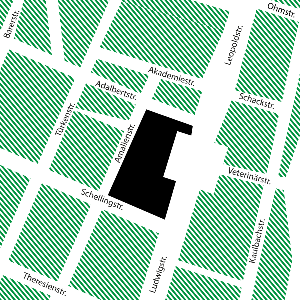Ludwig, Max + U is the new central dialogue platform of Ludwig-Maximilians-Universität. It presents and discusses current scientific research in a variety of formats – interdisciplinary and public.
One of its key formats is a rotating exhibition space. Each year, subject-specific research is showcased, along with the researchers behind the work. The exhibition content is created co-creatively, through a collaboration between science and design.
In this way, Ludwig, Max + U promotes science communication within the university community, while also making LMU’s – at times highly complex – research accessible to the public. It highlights the connections between fundamental academic research and real-world societal issues.
Visitors are invited to explore their own perspectives on the exhibition's theme – and on science in general – and to become part of the ongoing dialogue.
Current exhibition “Diversity of Biodiversity”
The exhibition "Diversity of Biodiversity" shows the wide range of ways in which the topic is explored within the Faculty of Biology. With aesthetic exhibits, clear graphics and easy-to-understand texts, science is made accessible to everyone.
The range of projects stretches from the future of olive oil and the puberty of butterflies to the question of how the evolutionary history of humans can be traced through analyses of monkey urine.
At the same time, it becomes clear how closely research is tied to social and ethical questions. Because the projects on display also address invisible care work and unfinished tasks, it raises issues of sustainable scientific practice, and it demonstrates how diversity can promote efficiency. Visitors are also invited to explore their own perspectives on the exhibits and to take part in LMU’s dialogue on science.













